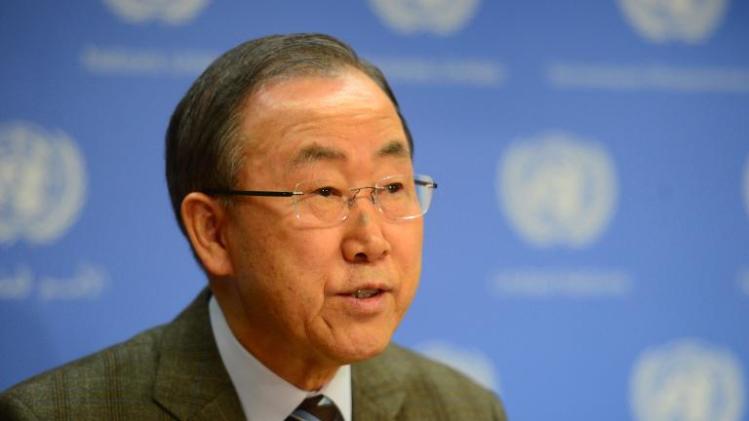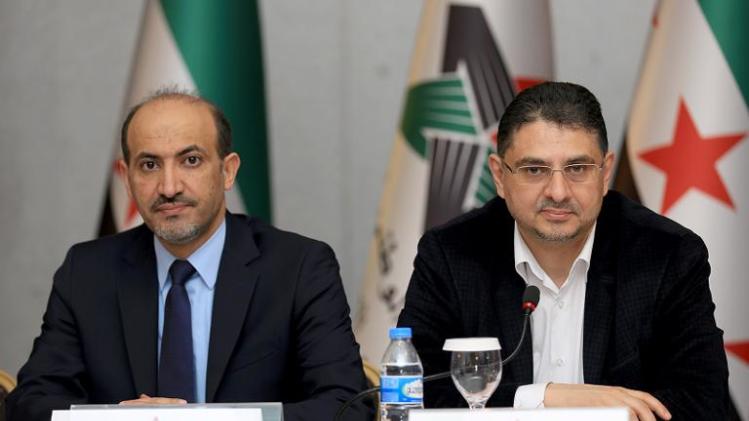Focus on Historic US – Iran
Deal:
Written by: KANWAL ABIDI
*** Political Analyst & Journalist
The historic tweet of
Iranian President Rouhani “The deal is done” around 3.30 am – on 23rd
November night – was a moment to celebrate in Tehran. A ten year ice was broken
with US government and Tehran looked forward to easing of the sanctions. It was the first time in nearly a decade,
American officials said, that an international agreement had been reached to
halt much of Iran’s nuclear program and roll some elements of it back.
The aim of the accord,
which is to last six months, is to give international negotiators time to
pursue a more comprehensive pact that would ratchet back much of Iran’s nuclear
program and ensure that it could be used only for peaceful purposes.
Shortly after the
agreement was signed at 3.00 a.m. in the Palace of Nations in Geneva, President
Obama, spoke from the State Dining Room in the White House, to hail it as the
most “significant and tangible” progress of a diplomatic campaign that began
when he took office.
“Today, diplomacy opened up a new path towards a world that is
more secure now,” he said, “a future in
which we can verify that Iran’s nuclear program is peaceful and that it cannot
build a nuclear weapon.”
In Geneva, the Iranian
foreign minister, Mohammad Javad Zarif, said he hoped the agreement would lead
to a “restoration” of trust between Iran and the United States. In an avuncular stance and smiling, he reiterated
Iran’s longstanding assertion that its nuclear program was peaceful, adding
that the Iranian people deserved respect from the West.
Secretary of State, John
Kerry, who flew to Geneva early Saturday for the second time in two weeks in an
effort to complete the deal, said it would “require Iran to prove the peaceful
nature of its nuclear program.”
Iran, which has long
resisted international monitoring efforts and built clandestine nuclear
facilities, agreed to stop enriching uranium beyond 5 percent, a level that
would be sufficient for energy production but that would require further
enrichment for bomb-making. To make good on that pledge, Iran will dismantle
links between networks of centrifuges.
US growing strong on Iran’s sites and
soils:
There are widespread
hopes, and fears fewer in number but more virulent, of the relationship between
Natanz – The Iranian nuclear fuel enrichment site and Itamar – one the Israeli
settlements in the West Bank, that is, the connection between Iran’s relations
with the West and Israel-Palestine peace. US Secretary of State John Kerry, in
remarks made since the Iran channel showed its promise, leaves no doubt that
the Obama administration considers these two threats to regional security to be
conceptually connected.
In Washington, the
decision to turn a new page in relations with Iran has, for the first time in
more than a generation, begun to remove practical, operational, bureaucratic
and ideological constraints that have defined US policies in the region. There
are encouraging signs that this “new thinking” is already enabling US
policymakers to consider possible opportunities that Washington has shunned for
decades — Iran, of course, is at the top of the list. Since 1979, no one
within US policy and security bureaucracy has seen any value in thinking
outside the box on Iran. Challenging the consensus view of Iran as a charter
member of the “axis of evil” was a terrible career move.
Today, however, thinking
about the possibilities of an improved US relationship with Tehran is back
on the agenda. And, as a consequence, there is space for more critical thinking
by the Washington policymaking bureaucracy. And if Iran is no longer a taboo
subject, then what is preventing Washington’s reassessment of other
“little Irans” formerly beyond the pale — for example, Hamas,
Hezbollah and even Syria’s terrible Bashar al-Assad?
The decision to open a
dialogue on Iran’s nuclear program, if it is to be fruitful, must necessarily
engage both US and Iranian policymakers, and therefore everyone else, in far
broader considerations aimed at defanging other threats to regional security
and devising “win-win” solutions across a range of issues according to the
model being discussed by the five permanent members of the UN Security
Council plus Germany or P5 + 1.
A quick look at the map
identifies both the Hamas-ruled Gaza Strip and Lebanon’s Hezbollah as important
factors in this equation. Each has long been considered by its enemies as a
“spoiler” — crashing the party organized by Washington and Israel. But without
underestimating the continuing power of this view, the blinkers that have long
limited Washington’s space for considering these charter members of the axis of
evil are being lifted. In both cases, new US thinking on Hamas and Hezbollah
would have to be reciprocated by its respective leaders Khaled Meshaal and
Hassan Nasrallah, while each attempt to navigate an improved place in the
new Middle East being imagined by Washington and Tehran.
All threaten to upend
Israel's view — and not only Israel’s — of how the future should unfold. In
this new context, every car bomb in Dahia or shelling of the Gaza
Strip is viewed, perhaps with justification, as a provocative
challenge by dead-enders of all stripes to embryonic reconciliation orchestrated
by US President Barack Obama and Iran's Supreme Leader Ayatollah Ali Khamenei.
There is a real potential indeed for such actions to threaten or even
overwhelm the still-fragile connections being forged. Washington and Tehran
together are each obligated to communicate their commitment to succeed and
steel themselves against being whipsawed by those anxious to change the subject
and resume more familiar, comfortable — if deadly —business as usual.
Israel
upset over US and Iran Deal:
Israeli Prime Minister
Benjamin Netanyahu’s failure to revise his attitude toward Obama’s efforts
on Natanz and Itamar - promises to cause him increasing trouble in the months
ahead. During an October visit to Rome, Netanyahu acknowledged that “the
solution of the Iranian issue may have a decisive influence on the Palestinian
issue — for bad and for good.” Obama has left no doubt that the train on Iran
has left the station, apparently without Netanyahu aboard.
In both Natanz and
Itamar, Kerry is adopting the standard of increasing mutual security through
agreement — not force, or war, or continuing occupation — and enabling a US-led
diplomacy to create a stable framework for peace that will in each case
increase Israel's security. Netanyahu sees only the potential perils of this
holistic connection and the challenge that it presents to his worldview.
As Obama stressed in
remarks on Dec. 8 in Washington, “The United States’ military
cooperation with Israel has never been stronger. Our intelligence cooperation
with Israel has never been stronger. Our support of Israel’s security has never
been stronger."
For Netanyahu, these
soothing words are not a source of comfort, but rather a cause for concern. If
Bibi’s warning against a diplomatic solution for Natanz is rejected by Obama, then
what, Bibi fears, will stop Obama from having his “own way on Itamar?” And he
is right.
Conclusion:
Diplomacy as an end unto itself:
President Obama in his
speech on 10th Sept 2013, talked of placing “no boots on the ground”
and a limited military strike” to avert any Syrian threat. Obama stated that
his preference was always to resolve the issue “diplomatically’. Few
months back, Syrian regime denied it possessed any chemical weapons, it turns
out that Syria now is actually removing its chemical weapons and has provided a
comprehensive list that they have already begun taking these weapons out of
Syria. And although that does not solve the tragic situation inside of
Syria, it turns out that removing those chemical weapons will make us safer and
it will make Israel safer, and it will make the Syrian people safer, and it
will make the region safer.
And so I do not see military action as an end unto itself. Military action
is one tool that we have in a tool kit that includes diplomacy in achieving our
goals, which is ultimately our security. We should make “diplomacy as an end
unto itself”.
Likud
Convention Speech of Netanyahu – 18th Dec 2013
Prime Minister Benjamin Netanyahu dedicated a
large part of his speech on Dec.18 at the Likud Party convention to the
Iranian nuclear program. He behaved in an alien way, dismayed by the Iran deal
- as if “no agreement” had been signed between the world powers and Iran. He
carried same old threatening tone with the bottom line that “Israel will not accept a nuclear bomb.”
This was an anachronistic speech, lacking in
vision, and most of all, detached from the international reality created after
the signing of the Iranian Geneva deal on the night of Nov. 23. The
significance of the interim agreement is that in the next few months, at least
until negotiations over a final agreement, the “world powers are giving diplomacy a chance”, calming the tone and
halting the threats. Only in Netanyahu’s world has time been frozen.
Focus on President Obama’s
Year-end News Conference – 20th Dec 2013
President Obama in his
year - end news conference, from the White House, on 20 Dec, Friday, ahead of
the vacations, spoke of various issues of Obamacare, health laws and diplomacy
pursued with the Iran. Obama categorically stated few facts and came out
forceful in his speech that “America has nothing to fear from Iran.”
“We lose nothing under
this negotiation deal” stated by Obama – under his diplomatic stance. Current
deal of $ 7 billion will be beneficial to restore diplomatic relations with
Iran and at the same time US has made clear that Iran cannot build new nuclear
plants and neither can they extend on the networks of the centrifuges.
Obama says “if negotiations would fail – Iran knows
very well, they can come under high economic pressure.” He assured the
American nation that we can do it in “one
day” to burden Iran once again by the sanctions. At the end, he wished his
nation and the world a “happy new Year”
with a concrete and a definite message of “diplomacy as an end unto itself.” But,
on the other hand, PM Netanyahu has left the message that “Deal is a Christmas
present” for @Iran.
At the end, Israel
hopes that Obama will not arrive at the wrong conclusion from what had
transpired in Syria. To solve the Iranian problem, Jerusalem says, Obama needs
to demonstrate much greater resolve, creativity and a much larger stick than
the one he flashed at Syria.
*………………………………*………………………………….*
Written By:
KANWAL ABIDI MBA, CA (F), JAIBP & ACB (UK)
-
Political Analyst & Journalist
President Mishal Welfare Trust
Public Advocate @ Citizens Advocacy Platform
Peace/Human Rights Activist
The writer can be reached through
Twitter @KANWALanalyst



